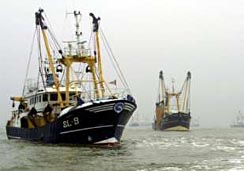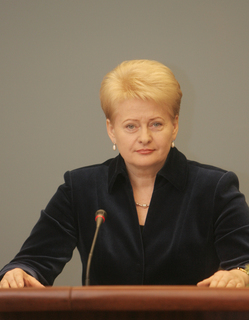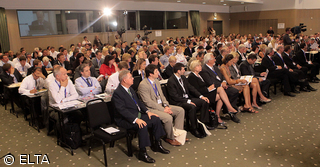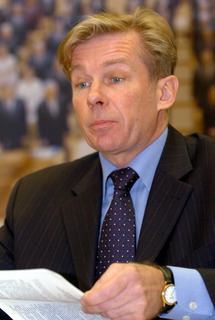The struggle pitting Russian President Vladimir Putin's Kremlin against the head of the huge Russian oil company Yukos has analysts and investors concerned about the future of political and economic reform in Russia
Published:
1 November 2003 y., Saturday
The struggle pitting Russian President Vladimir Putin's Kremlin against the head of the huge Russian oil company Yukos has analysts and investors concerned about the future of political and economic reform in Russia.
Of most concern is the belief among some leading analysts that the methods being used in the case are reminiscent of the Soviet era.
In a pre-dawn raid on October 25, Russian secret service agents moved in to arrest Yukos Chief Executive Mikhail Khodorkovsky at gunpoint, while he was on a business trip in Siberia. Mr. Khodorkovsky was flown to Moscow for questioning, and shortly thereafter was charged with seven counts of tax evasion and fraud.
The dramatic move against Russia's richest man made him the third senior Yukos official to be arrested since the crisis over Russia's largest oil company erupted four months ago.
The dispute began in July with the arrest of major Yukos share-holder Planton Lebedev on theft charges, and a wave of raids on Yukos-affiliated companies by Russian prosecutors.
In an escalation of the crisis on Thursday, Russian prosecutors seized a controlling interest in the huge Russian oil company. And President Vladimir Putin's chief of staff, Alexander Voloshin, resigned, amid apparent disagreement over the tactics being used against Mr. Khodorkovsky.
Russian business leaders see the government's moves against Yukos executives as a disturbing trend in law enforcement that could lead to a massive redistribution of assets gained during the privatization of the 1990's, and, they say, economic calamity.
Šaltinis:
voanews.com
Copying, publishing, announcing any information from the News.lt portal without written permission of News.lt editorial office is prohibited.
The most popular articles
 A specific EU budget line for the new EU stabilisation mechanism should be created as soon as possible, to ensure its credibility, Council, Commission and Parliament negotiators agreed at a three-way meeting on Wednesday.
more »
A specific EU budget line for the new EU stabilisation mechanism should be created as soon as possible, to ensure its credibility, Council, Commission and Parliament negotiators agreed at a three-way meeting on Wednesday.
more »
 New EU rule will help phone-users avoid astronomical bills for web-surfing and downloads abroad.
more »
New EU rule will help phone-users avoid astronomical bills for web-surfing and downloads abroad.
more »
 The Communication approved today by the Commission builds on the principles presented on 12 May to reinforce the economic governance in the European Union.
more »
The Communication approved today by the Commission builds on the principles presented on 12 May to reinforce the economic governance in the European Union.
more »
 Eurostat report just published shows that the crisis has brought some lower taxes.
more »
Eurostat report just published shows that the crisis has brought some lower taxes.
more »
 New legislation is needed to ensure fair returns to farmers and transparent prices to consumers, by enforcing fair competition throughout the food supply chain, said Agriculture Committee MEPs on Monday.
more »
New legislation is needed to ensure fair returns to farmers and transparent prices to consumers, by enforcing fair competition throughout the food supply chain, said Agriculture Committee MEPs on Monday.
more »
 Fish imports play a crucial role in supplying the European market, yet fisheries and aquaculture are strategic sectors that do not lend themselves to a purely free-trade approach, believes the EP Fisheries Committee.
more »
Fish imports play a crucial role in supplying the European market, yet fisheries and aquaculture are strategic sectors that do not lend themselves to a purely free-trade approach, believes the EP Fisheries Committee.
more »
 I will support every proposal that strengthens cooperation among the European Union's Member States and serves Lithuania's interests," President of the Republic of Lithuania Dalia Grybauskaitė said at the meeting with EU Member States' ambassadors resident in Lithuania.
more »
I will support every proposal that strengthens cooperation among the European Union's Member States and serves Lithuania's interests," President of the Republic of Lithuania Dalia Grybauskaitė said at the meeting with EU Member States' ambassadors resident in Lithuania.
more »
 The fourth World Lithuanian Economic Forum “High tech innovation & investment: local to global” will start in London on 22 June.
more »
The fourth World Lithuanian Economic Forum “High tech innovation & investment: local to global” will start in London on 22 June.
more »
 Lithuania aims for the five Nordic countries and three Baltic States to become single community of values, which would be linked by a versatile quality of democracy, security and everyday life.
more »
Lithuania aims for the five Nordic countries and three Baltic States to become single community of values, which would be linked by a versatile quality of democracy, security and everyday life.
more »
 MEPs decided on Wednesday to create a special committee to prepare for the EU's next long-term budgetary framework.
more »
MEPs decided on Wednesday to create a special committee to prepare for the EU's next long-term budgetary framework.
more »